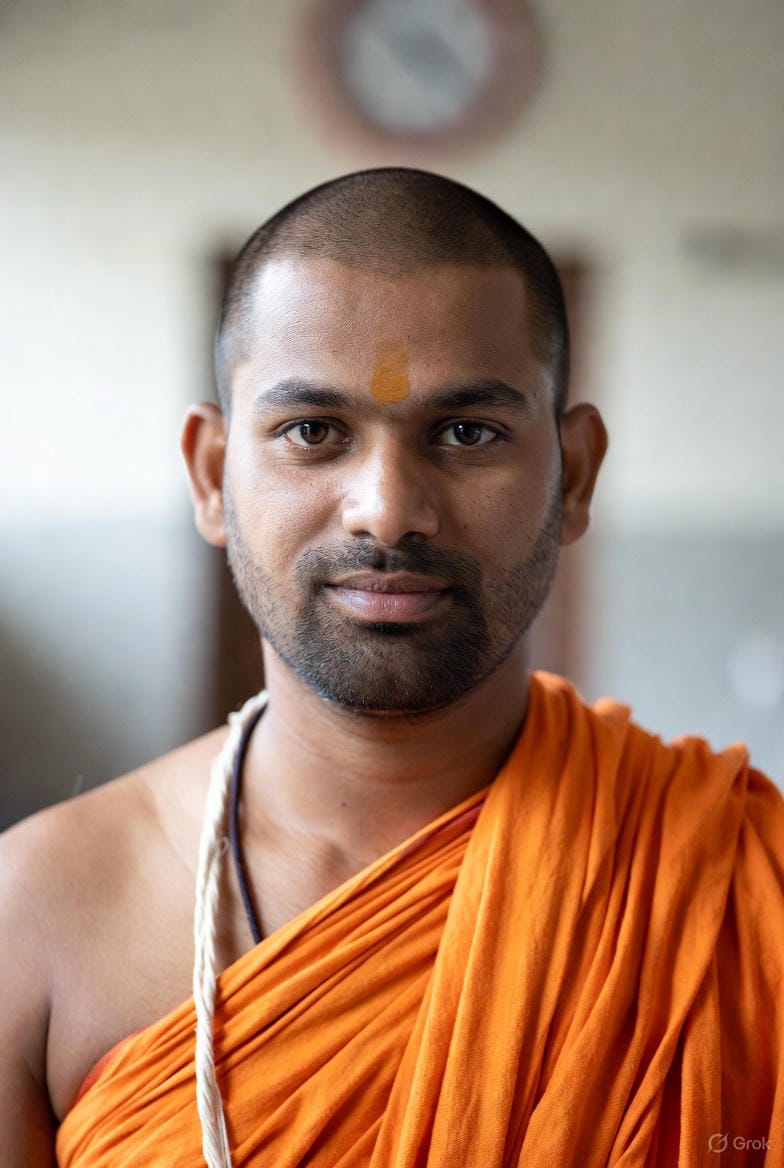The Priest and The Lessons of Time
There is a community in the city of Kathmandu. There are many buildings and houses in this community. Many people who come to this dreamland of capital to study, work, or find jobs, live in these houses and buildings. There also live people whose children are physically and mentally disabled.
The day is Saturday. So, all schools and offices are closed. After two days of heavy rain, the sun is shining. Having the joy of the weekend, people and families are in a good mood to go shopping; some go for picnics. The traffic of moving people on foot and by vehicles seems very lively.
There is one playground in this community. Children with or without disabilities are often seen playing in the playground.
On the other side of the playground, there is one big temple where the idols of gods and goddesses are installed and worshipped. Krishna Bhatt is the designated residential priest of the temple who lives there with his family; wife Radha and son Prakash. Priest Bhatta is staunchly orthodox and conservative. He hates children who have disabilities and holds some misconceived theory of ‘Bad Karma’ resulting in such disabilities. He even hates their parents for giving birth to such kids. He chastises those parents who have disabled children and rebukes those children with physical and mental disabilities. He thinks that these children are a burden in the world and to their families.
Priest Bhatta walks to and fro the temple through the playground. One day, when he was crossing the field, a soccer ball booted by a child bounced on the sacred plate that he was carrying in his hands, causing everything to scatter all over the ground. This was sacrilege. It can’t get worse than this.
The priest is furiously maddened with the children and starts to yell and scold them. Children became pale with fear, and they began to cry, which made the priest more irritated. Driven by maybe his sacred anger, he started beating some of the children. The children cred and wailed even louder.
Right at the moment, one teacher who was also disabled appears to pass by. He steps in to find out what was going on there. After ascertaining the mishap and learning about the priest’s misbehavior, he consoles the children and sends them home.
Now, he turns on the priest very disapprovingly. He starts to admonish the priest. The priest never liked the teacher because of his disability. Now he utters an imprecation, mutters something under his breath, turns his back, and walks away in a rage.
Circumstances prevail on the priest to change his attitude. Time never remains the same. After a while, the priest compelled himself to send his noisome and recalcitrant child to the school where the same teacher worked.
Weeks and months pass by. One day, when playing in school, the priest’s son climbs the tallest tree beside the school premises. The boy loses his balance and falls from that tall tree, and becomes unconscious. The school’s staff rushes him to the hospital and luckily saved the boy’s life. The child survived, but the priest and his wife knew that their son would be unable to stand on his own legs because of spinal cord injury. They returned from the hospital, as usual, cursing life and destiny.
They met some human rights activists of people with disabilities on their way home from the hospital and asked for help. With their big hearts, the activists promise the priest’s family that they would provide their full support and help for the boy’s education and wellbeing.
Getting support and help from the activists, from the society at large, and from his family, plus by his own hard work and diligence, the boy thrives and pursuits his study and gets a scholarship to study abroad.
Earning his international degrees, he returns home as a well-known doctor and starts his career. We see the same priest crossing the same playground where children of different physical states are still playing. A football again lands heavily on the same Thali, and the stuff of pra; Ind worship go flying in the air.
This time the priest does not show his divine wrath. Instead, he comes up with a different response. He looks up at the sky and winks and laughs uproariously, saying, “Oh Gods, play your football in the heavens, and stop testing me. I now love LIFE, I will not lie.”
He puts down the Thali on the lap of a young brahmin girl sitting in a wheelchair nearby and demonstrates to the children how to perfectly kick the ball.












Truly awesome
love it
Thanks
Thank You shining pens for publishing my story
Bravo 👏🏼 Prakriti, you have written a really nice story. You can be proud of yourself and your dear parents too 😍
thank you
Prakriti Ji Great writing and truly inspiring words. Most people have the same behavior they don’t act until it does not happen to them.
yes…..this is bitter truth
Brillant story, congratulations 🙂
Thank You very much for your valuable comment.
I’m proud of you seriously keep it on
Thanks for valuable comments.
Don’t forget to share with others.